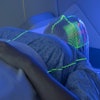The American Society for Radiation Oncology (ASTRO) has launched a six-point patient protection plan aimed at improving safety and quality and reducing the chances of medical errors.
The initiative comes in the wake of two recent New York Times articles that highlighted a dangerous problem: As technology rapidly develops, safety procedures become outdated just as rapidly. Quality assurance programs may not be comprehensive enough, and they may not be adhered to on a consistent basis due to a lack of appropriately trained clinical staff, lack of enough staff, lack or lapses of oversight, or a badly run department.
ASTRO crafted the six-point plan after reviewing its patient safety and quality assurance projects at the January meeting of its board. The society pledged to:
- Work with the Conference of Radiation Control Program Directors (CRCPD) to create a database for the reporting of linear accelerator- and computed tomography-based medical errors
- Launch an enhanced practice accreditation program, and begin to develop additional accreditation modules that address advanced technologies such as intensity-modulated radiation therapy (IMRT), stereotactic body radiation therapy (SBRT), and brachytherapy
- Expand its educational training programs to include specific courses on quality assurance and safety
- Work with patient support organizations to develop tools for cancer patients and caregivers for use in their discussions with their radiation oncologist to help them understand the quality and safety programs at the centers where they are being treated
- Further develop its Integrating the Healthcare Enterprise Radiation Oncology (IHE-RO) connectivity compliance program so that medical technologies from different manufacturers can safely transfer information to reduce the chance of a medical error
- Provide its members' expertise to policymakers and lobby for new and expanded federal initiatives to help protect patients, including support for immediate passage of the Consistency, Accuracy, Responsibility and Excellence in Medical Imaging and Radiation Therapy (CARE) Act to require national standards for radiation therapy treatment team members
Related Reading
Second NY Times article highlights radiation therapy errors, January 29, 2010
ASTRO, ACR publish joint guidelines for radiation therapy, January 29, 2010
NY Times article details radiation therapy errors, January 26, 2010
Adaptive radiation therapy monitors tumor change, December 25, 2009
ASTRO publishes IMRT guidelines, August 7, 2009
Copyright © 2010 AuntMinnie.com



















